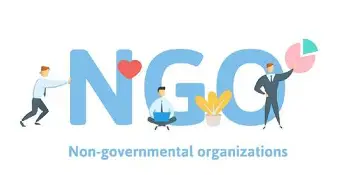Azerbaijan’s parliament approved legislative amendments introducing new fines for non-governmental organizations (NGOs) that violate service and operational requirements. The changes, passed in the third reading, modify the Code of Administrative Offenses to expand legal liability from grant agreements to also include service contracts.
Tightening Control Over NGO Operations Previously, only unregistered grants were subject to legal penalties. Now, NGOs can be fined for failing to register service contracts or for receiving payments under such agreements. Legal experts and civil society leaders warn this will severely undermine what remained of NGO functionality.
“This change effectively eliminates the last functioning legal mechanism NGOs used to survive since 2014,” said human rights lawyer Samed Rahimli. “It criminalizes service contracts, which replaced grants as a workaround to draconian restrictions imposed a decade ago.”
The move comes amid renewed pressure from the Prosecutor General’s Office, including an ongoing “USAID case” targeting NGO financing mechanisms. Rahimli argues the new law underscores the government’s clear intent to eliminate civil society funding altogether.
A Blow to Freedom of Association According to Rahimli, the amendments go beyond administrative updates, instead posing a direct threat to freedom of association, guaranteed by Article 58 of Azerbaijan’s Constitution and Article 11 of the European Convention on Human Rights (ECHR).
“The Venice Commission already warned in 2014 that Azerbaijan’s NGO laws violate international standards. The new amendments extend these violations by blocking service contracts, leaving civil society legally paralyzed,” he stated.
Civil Society Voices Silenced Zöhrab Ismayil, former head of the now-defunct Public Association for Assistance to Free Economy, says the amendments are part of a long-term strategy to dismantle civil society:
“In 2014, our organization had over 20 staff and a large research archive. After criminal investigations and frozen accounts, we were forced to shut down. It took years to win a case at the European Court of Human Rights, but by then our operations were destroyed.”
He emphasizes that even NGOs with neutral or semi-governmental stances are now targeted:
“The fines aim to instill fear, not transparency. Service contracts with embassies or international partners now carry legal risk, even for unregistered or freelance professionals.”
A Systemic Crackdown Ismayil explains that most independent NGOs have ceased operations. Only organizations receiving funds from the state-controlled NGO Agency remain active, and they do not require contract registration. Internationally funded or volunteer-led groups operate under constant threat.
He warns this is the final stage of a systematic purge:
“Even loyal groups are subtly told to stick to irrelevant topics or face closure. Civil society is not just being restricted; it is being erased.”
Rebuilding From Abroad Despite the crackdown, some NGOs have re-registered and resumed work from Europe. While this reduces their domestic reach, it preserves their existence and global advocacy role.
“The landscape is grim,” said Ismayil, “but activism continues both inside and outside Azerbaijan. Civil society may be battered, but it is not broken.”

